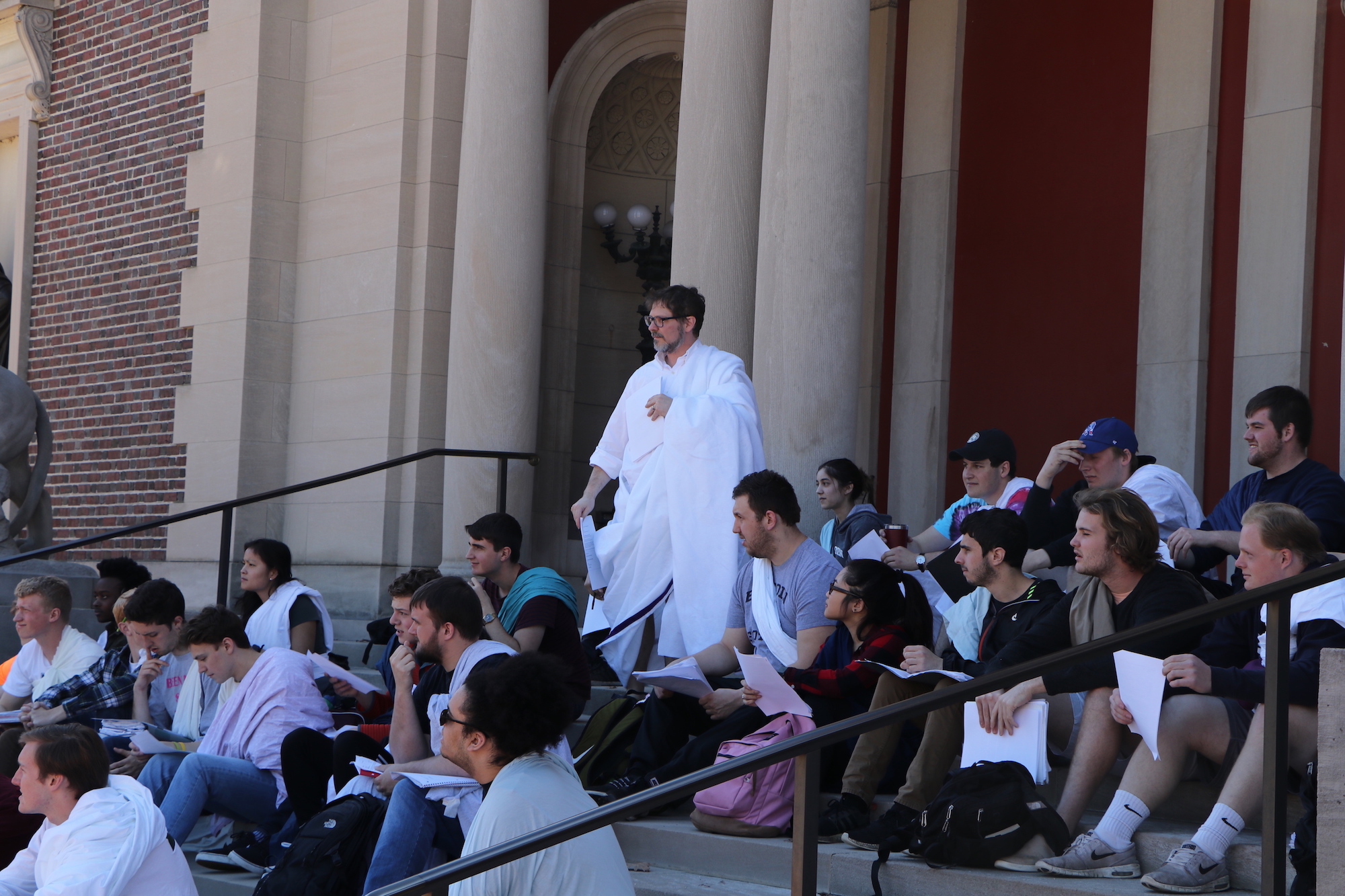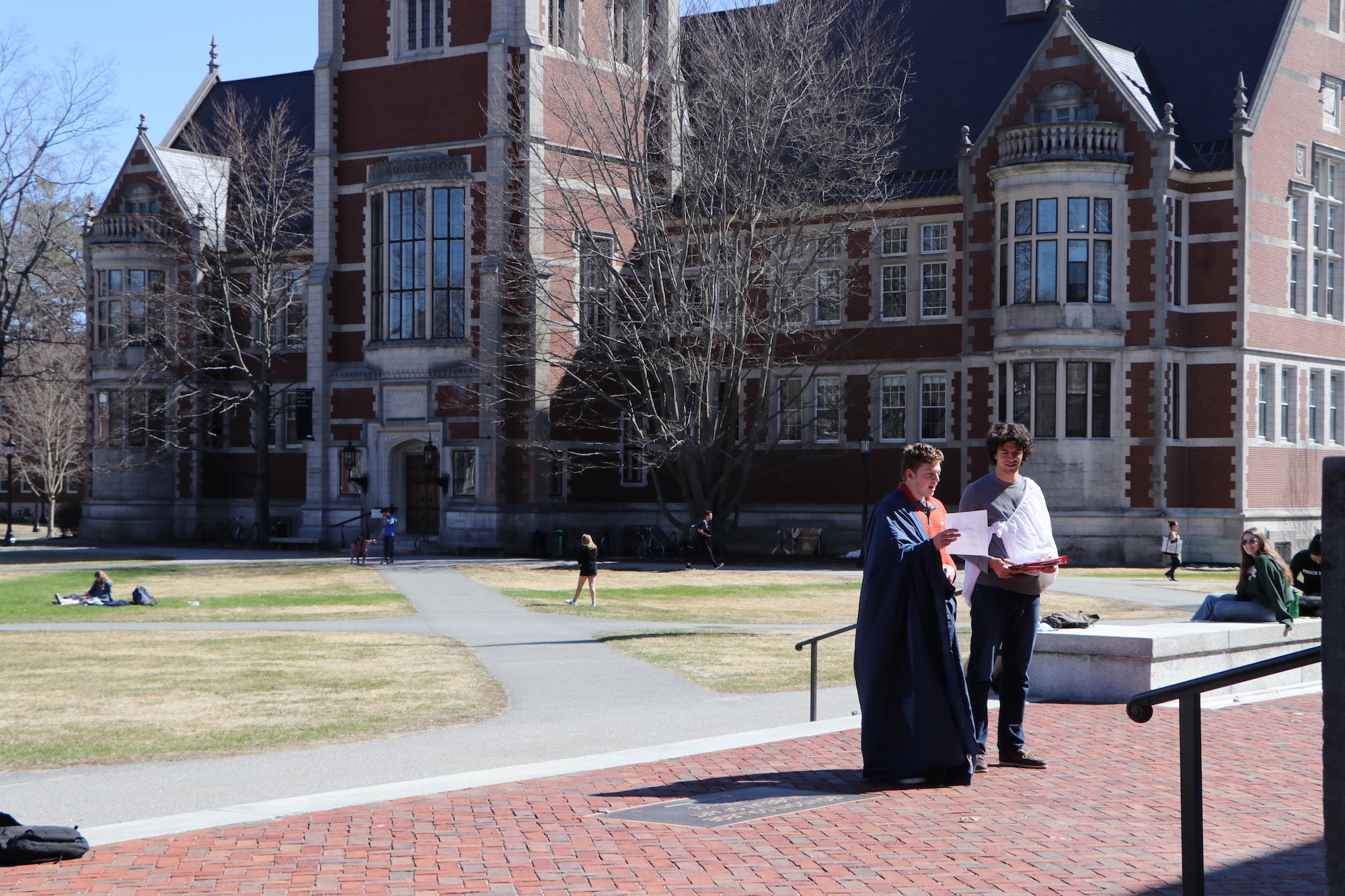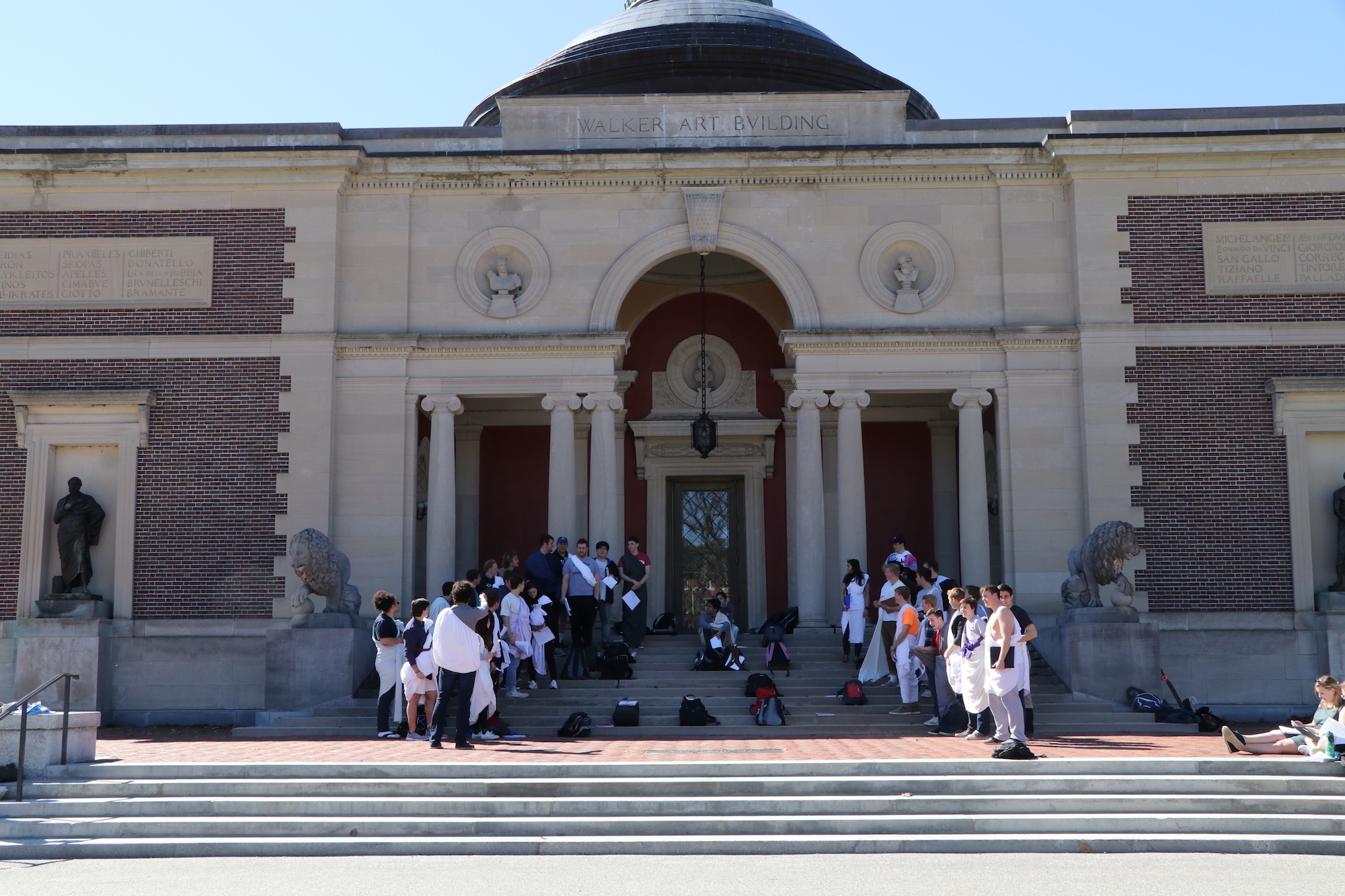Escaping reality through class simulation games
April 19, 2019
 Ezra Sunshine
Ezra SunshineIsabella Angel ’22 is too nervous to eat dinner, drinking ginger ale instead in hopes of calming her anxiety. In 10 minutes, she will no longer be a Bowdoin College student but Fulvius Nobilior, a Roman general and esteemed member of the Senate, where she will face her rival in a court case over stolen goods.
“If I get defeated in battle, I will dishonor the names of my ancestors for eternity!” Angel said.
Angel is a participant in the Roman Senate simulation game, run by Lecturer in Classics Michael Nerdahl as a part of his class “Republic of Rome and the Evolution of Executive Power.” The game, which Nerdahl created in 2013 and redesigned in 2017, is one of several role-playing games that history and classics professors have incorporated into their syllabi, aiming to immerse students in the historical era that they are studying.
After half a semester of lectures and discussions, students are assigned roles, typically historic figures, and then given a set of goals for their character to achieve. Class time is spent in character, debating and plotting ways to achieve one’s objectives, be it to overthrow the French republic or to increase the size of the Roman navy. Students base their actions in the game on the decisions of their historical characters and information gleaned from primary source documents of the time.
“When you’re doing these reacting games, it forces you to think how your character would have thought about primary sources and really engage in those sources in the same way as those people of that time period,” said Ben Bousquet ’20, who has taken three simulation-style classes.
Associate Professor of History Meghan Roberts also includes simulations in her classes, using a role-playing module designed at Barnard College as a part of a classroom simulation series called Reacting to the Past. This semester, Roberts is teaching “Old Regime and Revolutionary France,” and her students are currently engaged in a simulation game that often ends in shouting matches.
Heated debates and strategic thinking make for fun and exciting class sessions, but Roberts finds the most rewarding aspect is the way it changes students’ understanding of historical events.
“[After the simulation,] our discussions are so enriched, because students have thought so deeply about the years leading up to the [Reign of] Terror. It’s not this inevitable thing that has happened. They have this really great critical engagement with it,” she said.
The level of student immersion in these games can be astounding. Outside of class time, students conspire and collaborate, crafting frantic emails sprinkled with Latin greetings and verses of poems in order to attain their goals. Failing to do so does not necessarily result in a lower grade, but can be a hit to students’ pride.
“I would definitely cry [if my character died]. So am I too into it? Yes,” said Angel.
These pressures can cause students, or their characters—as the games proceed, the distinction between the two can become increasingly hazy—to devote great amounts of time and energy to the game outside of class.
“There’s recently been a bit of drama in our class,” said Rachel Yang ’22, another student in Nerdahl’s class. “People are really into it. They’re trying to get things done for Rome, and they’re so frustrated. People were making passive-aggressive remarks about how someone was unbecoming of a senator and I got an email a few days ago about bringing someone else on trial.”
Role-playing games bring history to life, but, more importantly, they present a different way of engaging with history by emphasizing the role of the individual in historical events. Was the transition of the Roman Republic into the Roman Empire inevitable? Would the French Revolution have happened in the same way had it lacked charismatic leaders? Do unstoppable cultural forces dictate the path of human civilizations? Or is the past merely a series of coincidences?
“You can definitely see how a different person, even if it’s in an assigned role, can have a different impact,” said Roberts.



Comments
Before submitting a comment, please review our comment policy. Some key points from the policy: